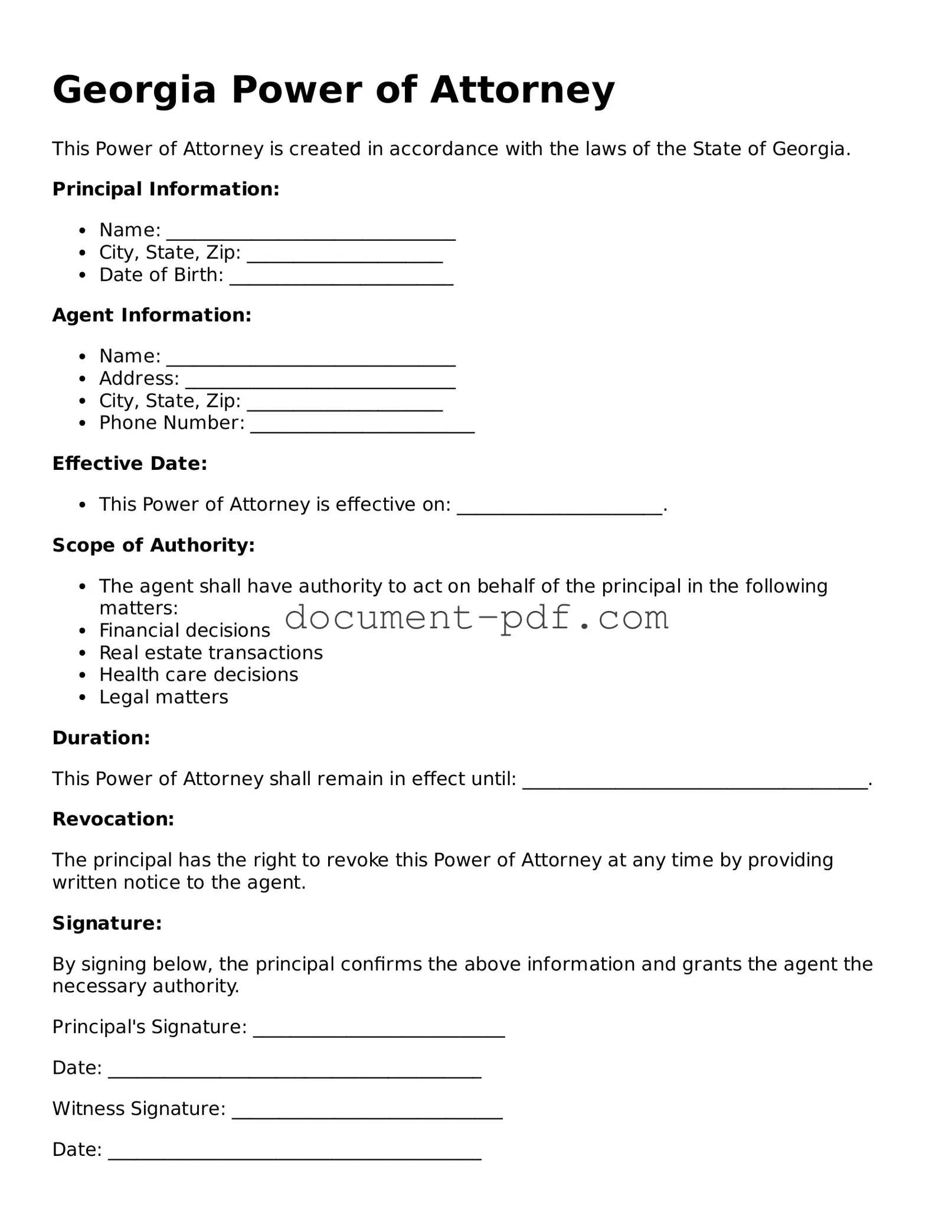Attorney-Verified Georgia Power of Attorney Template
The Georgia Power of Attorney form is a legal document that allows one person to grant another the authority to make decisions on their behalf. This form can cover a wide range of financial and legal matters, ensuring that your wishes are respected even when you cannot act for yourself. To get started with your own Power of Attorney, fill out the form by clicking the button below.
Access Power of Attorney Editor Here

Attorney-Verified Georgia Power of Attorney Template
Access Power of Attorney Editor Here
Finish the form without slowing down
Edit your Power of Attorney online and download the finished file.
Access Power of Attorney Editor Here
or
Click for PDF Form
